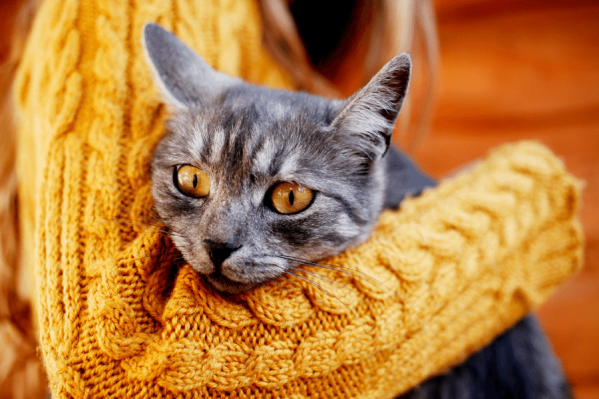Most cats will experience diarrhea at some point in their life. Diarrhea is a symptom rather than a disease in itself. Finding the cause of the cat diarrhea can help establish the best treatment and also help prevent future bouts.
Causes of diarrhea in cats
Diarrhea can occur suddenly and be of short duration or it can be a more chronic problem. The appearance of the stool (watery or soft) and frequency of diarrhea can also help your vet get a better idea of what the cause might be.
Causes of cat diarrhea include:
A change in diet
Eating something they shouldn't have
Food sensitivity
Parasites or bacteria
Pancreatitis
Other diseases such as liver disease and gastrointestinal cancer
A change in diet
A common cause of cat diarrhea is a change in diet. Sudden changes in the brand of food you feed or the type of cat food you use can potentially cause diarrhea. It's always better to change to a new food slowly by adding more of the new food each day and reducing the amount of old food accordingly. This should ideally be done over a period of five days to two weeks.
Eating something they shouldn't have
A cat who has gotten into the trash or eaten human food can experience diarrhea, especially if the food has started to spoil or contains a lot of fat and/or sugar.
A food sensitivity or allergy
Cats can have an allergy or sensitivity to something they're eating. This type of diarrhea will usually be a long-term problem as long as the cat is eating the same food. Depending on the cause of the sensitivity, your vet will be able to advise you on the best prescription diet to try to correct this issue.
Parasites or bacteria
Parasites, bacteria, and viruses can also cause diarrhea in cats. Kittens should have their stool checked for internal parasites or worms three to four times as they mature into teenagers. Adult cats should have parasite screenings annually.
Mother cats pass internal parasites to their babies, and adult cats can become infected through hunting (even insects) or contact with other pets.
Pancreatitis or other diseases
There are many other diseases which can cause loose or watery stools. Pancreatitis, liver disease, and gastrointestinal cancer for instance, can cause diarrhea. If you notice your cat has lost weight, it's important to book an appointment with a veterinarian.
Treatment for diarrhea in cats
One great first step in keeping your cat healthy (and hopefully diarrhea free), is ensuring your cat is up to date on vaccines, deworming, and tick and flea preventions. Preventative care will help to prevent intestinal parasite infections and some viral infections.
Cats that have diarrhea for less than 24-48 hours with no other symptoms can be fed a bland diet. A diet of boiled white meat chicken or boiled hamburger and rice is a good choice. You can try to add some extra fiber to this by adding pumpkin puree to the diet, although not all cats will want to eat the pumpkin. The bland diet can be fed for about 2-3 days and then the normal diet can be transitioned back in over about two days. Kittens have very specific growth requirements, so if you have to feed a bland diet for more than 24 hours to a kitten, it's best to get a fully balanced, commercially available bland diet from your vet. You can try to reduce dehydration from the diarrhea by encouraging your cat to drink water and even adding some water to the food to help increase the amount of water your cat ingests.
Probiotics are very good supplements that can be added to the diet to help balance the gut bacteria and firm up the stool a bit faster.
If after 48 hours, your cat still has diarrhea or you see other symptoms like vomiting, lethargy, poor or no appetite, weakness, vocalizing, or abnormal breathing, it's important to get your cat to a vet.
The vet will do a full physical exam and recommend any further tests that might be needed to diagnose the cause for the diarrhea. This can include fecal tests, bloodwork, x-rays, and an ultrasound examination.
Treatment will depend on the cause for the diarrhea, but can include fluids given subcutaneously (under the skin) or fluids through a drip, anti-parasitic medication, antibiotics, probiotics, and anti-nausea medication among others.
If your cat has diarrhea and you're not sure what you need to do next, the Vet Pros at Pawp are here to help 24/7. They are available without a prior appointment and can help you decide on the next best step you need to take.

Reviewed and fact-checked by
Dr. Mari, DVM at Pawp
